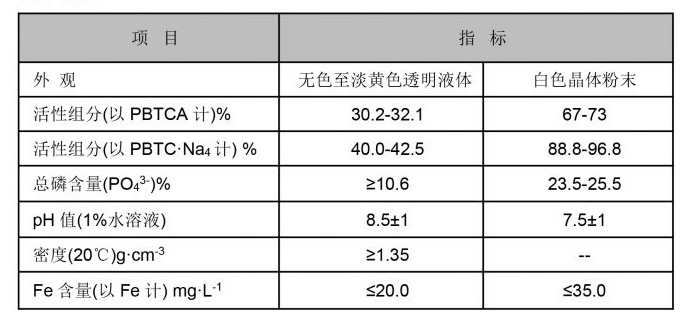Optimization of Scale Control and Corrosion Prevention in Cooling Tower Systems
Scale and Corrosion Inhibitors for Cooling Towers
Cooling towers are essential components in various industrial processes and HVAC systems, providing an efficient means of dissipating heat to the atmosphere. However, their operation can introduce significant challenges, particularly regarding scale formation and corrosion. These two issues are interrelated and can lead to reduced efficiency, increased maintenance costs, and even catastrophic failures if left unaddressed. Therefore, the use of scale and corrosion inhibitors is crucial for ensuring the reliability and performance of cooling towers.
Understanding Scale Formation
Scale formation occurs when dissolved minerals—primarily calcium, magnesium, and silica—concentrate in the water due to evaporation. As water circulates through the cooling tower, it loses water content, resulting in higher concentrations of these minerals. When their concentrations exceed solubility limits, they precipitate out of the solution, leading to scale buildup on heat exchanger surfaces, cooling tower fill, and other components. This scale acts as an insulating layer, reducing heat transfer efficiency and increasing energy consumption. Furthermore, the buildup can restrict water flow, which may lead to overheating and potential failure of equipment.
Corrosion in Cooling Towers
Corrosion is another critical issue in cooling towers caused by the presence of oxygen, low pH, and aggressive ions such as chloride. Corrosion can occur on metallic surfaces, including pipes, valves, and heat exchangers, due to electrochemical reactions. The resulting degradation not only compromises structural integrity but also contributes to the formation of corrosion products that can exacerbate scale issues.
The Role of Inhibitors
To mitigate scale and corrosion problems, the use of chemical inhibitors is imperative. Scale inhibitors are typically organic polymers or phosphonates that interfere with the precipitation process of scale-forming minerals. They work by binding to mineral ions in the water, preventing them from crystallizing and depositing on surfaces. By keeping these minerals in a soluble form, scale inhibitors significantly reduce scaling, thereby improving heat transfer efficiency and extending the lifespan of cooling tower components.
Corrosion inhibitors, on the other hand, are chemicals that form a protective film on the metal surfaces, acting as a barrier against corrosive agents. They can operate through various mechanisms, including passivation, where the inhibitor reacts with metallic surfaces to form a protective oxide layer. Other corrosion inhibitors work by scavenging harmful ions or by altering the electrical properties of the solution to decrease corrosion rates.
scale and corrosion inhibitor for cooling tower

Types of Inhibitors
There are several categories of scale and corrosion inhibitors, each tailored for specific applications and water chemistries. Common scale inhibitors include polyacrylates, phosphonates, and citrates. Phosphonates, for example, are particularly effective at inhibiting calcium phosphate and calcium carbonate scales, which are the most prevalent in cooling towers.
For corrosion prevention, a variety of inhibitors are used, such as nitrites, molybdates, and azoles. Nitrites are widely used in open cooling systems due to their ability to provide effective corrosion inhibition and are particularly useful for ferrous metals. Molybdates, on the other hand, are effective in providing protection against corrosion in high chloride environments, while azoles can offer protection for copper and its alloys.
Preventive Maintenance and Monitoring
The effectiveness of scale and corrosion inhibitors can be influenced by several factors, including water chemistry, operating conditions, and the concentration of inhibitor dosage. Therefore, regular monitoring and maintenance are essential to optimize the use of these chemicals. Key parameters such as pH, conductivity, and concentrations of dissolved minerals and inhibitors should be regularly tested to ensure that water quality remains within desirable ranges.
Furthermore, implementing proper water treatment practices, such as blowdown (the periodic removal of a portion of water from the system), can help control the concentrations of dissolved solids and minimize scaling and corrosion risks.
Conclusion
In conclusion, the management of scale and corrosion in cooling towers is critical for maintaining operational efficiency and reliability. The implementation of appropriate scale and corrosion inhibitors plays a vital role in addressing these challenges. By selecting the right inhibitors and maintaining optimal water chemistry, facilities can reduce maintenance costs, enhance system performance, and prolong the life of cooling tower components. A proactive approach to water treatment will ultimately lead to more sustainable operations and lower operational risks in industrial and commercial settings.
-
lk-319-special-scale-and-corrosion-inhibitor-for-steel-plants-advanced-solutions-for-industrial-water-systemsNewsAug.22,2025
-
flocculant-water-treatment-essential-chemical-solutions-for-purification-processesNewsAug.22,2025
-
isothiazolinones-versatile-microbial-control-agents-for-industrial-and-consumer-applicationsNewsAug.22,2025
-
scale-inhibitor-key-solutions-for-water-system-scale-preventionNewsAug.22,2025
-
organophosphonates-versatile-scale-inhibitors-for-industrial-water-systemsNewsAug.22,2025
-
scale-and-corrosion-inhibitor-essential-chemical-solutions-for-water-system-maintenanceNewsAug.22,2025





